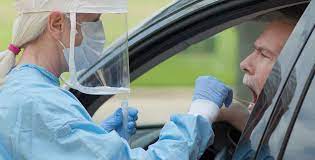In the ever-evolving landscape of healthcare, the question of whether health insurance covers COVID testing has become increasingly significant. The ongoing global pandemic has brought about a surge in the demand for testing, raising concerns about the financial burden on individuals seeking to ensure their health and safety. In this blog post, we\’ll delve into the intricate details of health insurance coverage for COVID testing, exploring the nuances that can impact your pocket and peace of mind.
Understanding the Basics:
Before we dive into the specifics, it\’s crucial to establish a foundational understanding of health insurance and its role in the context of COVID testing. Health insurance, in its essence, is designed to provide financial protection and assistance in meeting the costs of medical care. This typically includes doctor visits, hospital stays, medications, and other essential healthcare services. However, the extent of coverage can vary based on the type of insurance plan, the insurance provider, and specific policy details.
Coverage for COVID Testing:
In response to the global pandemic, many health insurance plans have adjusted their coverage to include COVID testing. The majority of insurance providers recognize the critical role testing plays in controlling the spread of the virus and have taken steps to facilitate access to testing for their policyholders.
Most insurance plans cover diagnostic tests that are deemed medically necessary. This includes polymerase chain reaction (PCR) tests, antigen tests, and other authorized testing methods. However, it\’s essential to be aware of the specific terms and conditions outlined in your insurance policy, as coverage may differ between plans.
Factors Affecting Coverage:
While the general trend is towards increased coverage for COVID testing, several factors can influence the extent of coverage or out-of-pocket costs for individuals. Here are some key considerations:
- Testing Purpose: Insurance coverage may vary depending on the purpose of the test. Testing for diagnostic purposes, such as confirming an active infection, is typically covered. However, testing for travel or other non-medical reasons may not be covered by all plans.
- In-Network vs. Out-of-Network Providers: Insurance plans often have a network of preferred healthcare providers. Visiting an in-network testing facility can result in higher coverage, while going to an out-of-network provider may lead to increased out-of-pocket expenses.
- Policy-Specific Details: Each insurance policy is unique, and the devil is in the details. Some policies may cover testing completely, while others might require a copayment, coinsurance, or deductible to be met before coverage kicks in.
- Federal and State Regulations: Government regulations and policies related to COVID testing can impact insurance coverage. It\’s essential to stay informed about any changes or updates in regulations that may affect your insurance benefits.
Navigating the Cost Landscape:
If you find yourself needing a COVID test, it\’s advisable to contact your insurance provider beforehand to clarify coverage details. Additionally, you can explore free testing options provided by government agencies and community health organizations.
Conclusion:
In the face of the ongoing pandemic, understanding the nuances of health insurance coverage for COVID testing is crucial for individuals seeking to protect their health without incurring significant financial burdens. While the majority of insurance plans now cover testing, it\’s essential to be proactive, inquire about policy specifics, and stay informed about any changes in regulations that may affect coverage. By navigating this complex landscape with knowledge and awareness, individuals can make informed decisions about their healthcare and contribute to the collective effort to combat the spread of COVID-19.
